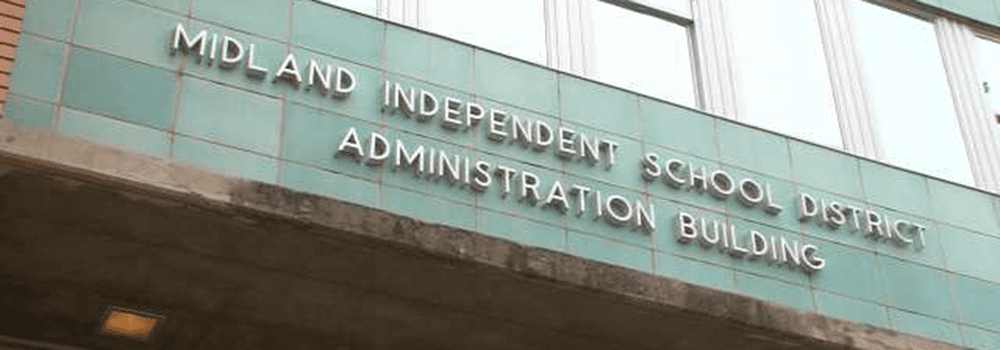Midland ISD school board members voted unanimously to raise property taxes via a tax ratification election this November. Although a rate has yet to be set, the district says that the only way for MISD to get out of the red is to raise the rate to the highest allowed under state law.
The board will have three to five workshops this summer to determine precisely how much to increase the rate, however, numbers provided by the district’s financial department indicate that it will likely fall between $1.13 and $1.17 per $100 valuation. The former is the lowest tax rate the district could levy in order to avoid withdrawing from the fund balance, which would cause its emergency fund to fall under the 3-months savings recommended by the state. The latter is an 11.7 percent increase from the current $1.04 M&O rate or an additional $260 a year for a $200,000 home. $1.17 is also the highest tax rate a Texas school district is legally able to levy.
District officials claim that the budget deficit is in large part due to “Robin Hood”, a court-mandated “equitable school financing system” that allocates money out of property-rich districts and distributes them to property-poor districts across the state. This year alone, approximately $47 million will be taken out of Midland and sent elsewhere.
A long and drawn-out lawsuit regarding the constitutionality of Robin Hood came to an end last month. The Texas Supreme Court upheld the recapturing system, ruling it as constitutional. As a result, sources say numerous “property-rich” school districts from around the state are responding by holding elections to increase their tax rates to the allowable state maximum in order to initiate another round of lawsuits. However, it’s unclear how much districts will truly benefit from an increase in tax revenue as it’s plausible that higher property taxes will only mean additional dollars being sent elsewhere.
Robin Hood aside, Midland has faced budget issues for several years and is accompanied by poor performance rates compared to peers– even when accounting for demographics, tax rates, and other factors. More than ever before, now is the time for residents to get involved, paying attention to what’s going on inside the classroom and the administration building.
The school board will vote on the 2016-2017 budget and accompanying tax rate on August 22nd. In the meantime, they will announce dates for town halls where the need for a tax rate increase will be explained and the community can give feedback.




